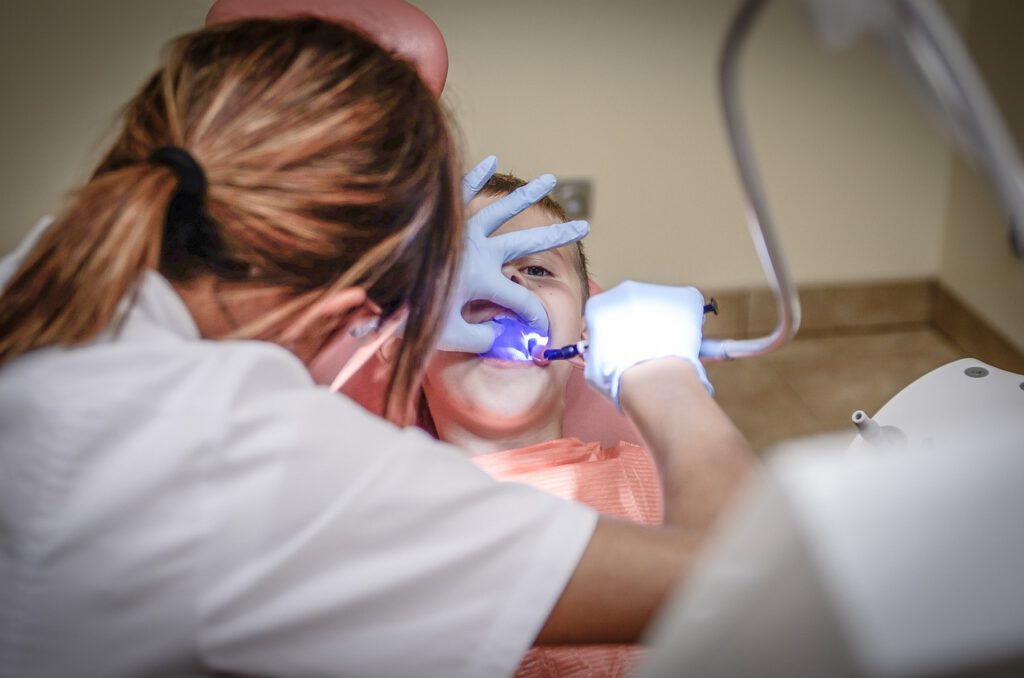The Government has today announced that it will deliver 700,000 additional urgent NHS dental appointments in England. This is an important step towards addressing long-standing challenges in dental access, which have left many people struggling to receive timely care. Policy Connect recognises the need for urgent intervention, given the severe access issues that have developed over recent years. According to the British Dental Association (BDA), NHS dentistry has been left broken after years of neglect, with patients left in pain and, in some cases, queuing around the block just to secure an appointment.
The Scale of the Problem
Recent statistics highlight the scale of the crisis. In England, nearly 12 million adults were unable to see an NHS dentist in 2022, while reports of ‘dental deserts’ – areas where NHS dental provision is sparse or non-existent – have become more frequent. This disparity in access disproportionately affects those in deprived and rural areas, exacerbating health inequalities.
While the additional appointments are a positive step, key stakeholders, including the BDA, have raised concerns about their implementation. The BDA has warned that Integrated Care Boards (ICBs) have not been given a national framework to support the delivery of these appointments. Last summer, the BDA proposed a sessional payment model, successfully used in the North East to improve urgent care access, yet this has not been integrated into the Government’s plans.
Lord Darzi, in his ‘diagnosis’ of the NHS crisis, emphasised the need for urgent contract reform to ensure NHS dentistry remains viable. The current contract model, based on outdated Units of Dental Activity, does not effectively support prevention or incentivise dentists to practise in underserved areas. Without significant reform, these additional appointments alone will not be sufficient to address long-term oral health challenges.
ICBs have a crucial role in improving dental access, but they require clear national guidance and adequate funding. The 2025/26 NHS Planning Guidance has rightly emphasised the need to improve access to dental care and consult on contract reforms. However, ICBs must be supported with a coherent strategy to ensure sustainable improvements beyond short-term measures.
The Ten-Year Health Plan provides an opportunity to embed dental care reform within a broader framework for primary care transformation. To truly improve access and outcomes, the plan must commit to contract reform that prioritises prevention and ensures equitable provision of NHS dental services across all communities.
Policy Connect’s Ongoing Work
Policy Connect’s Health team remains actively engaged in addressing these challenges. Alongside hosting a Ten-Year Health Plan event series, we will also co-host a joint APPG event in March on urgent dental care commissioning with the APPG for Dentistry, chaired by Dr Simon Opher MP and Yasmin Qureshi MP. These discussions will be vital in shaping the future of NHS dentistry and ensuring that today’s policy decisions translate into lasting improvements.
Furthermore, the APPG for Health is launching its inquiry into access to primary care services, supported by cross-party parliamentarians and leading sector bodies and charities. Dentistry will be a key pillar of this inquiry, reflecting the growing concerns over access to NHS dental care.
While the Government’s announcement is a positive step, it must be part of a long-term mission to make NHS dentistry more accessible, sustainable, and equitable. Without further reforms, including changes to commissioning models and contract structures, the issues that have plagued dental access for years will persist. Policy Connect remains committed to working with policymakers, professional bodies, and patients to advocate for meaningful and lasting change.




